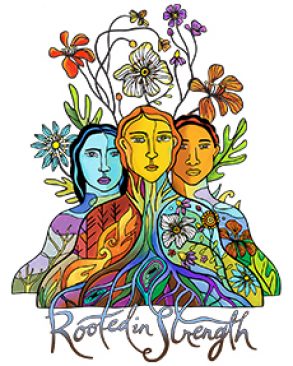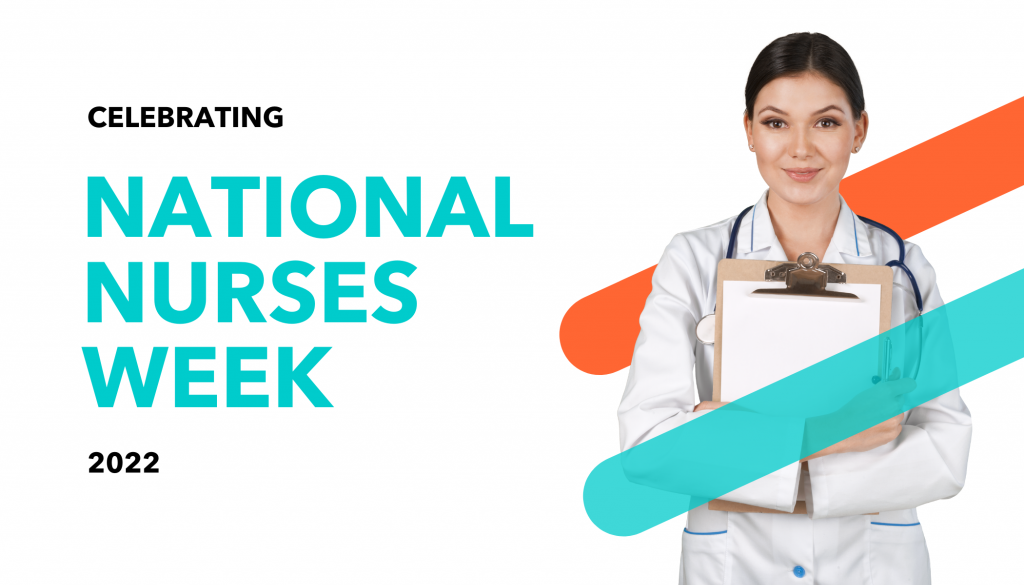Celebrating National Nurses Week
In 2020, the COVID pandemic changed our world in ways we never imagined experiencing in our lifetime. Employment, education, exchange of goods and services, and social structures were all altered in the name of safety. And changed the world in ways that still affect employment, the supply chain, and everyday activities.
Most people have since eased back into their jobs and lives, transitioning to new electronic means and from-home models, slowly returning to more normal classrooms, shopping, and recreation.
But the healthcare system hasn’t had the luxury of easing into or out of any part of the pandemic. It was upon us before we could prepare, changing everything. What nobody could have predicted was how long the struggle would last and how much would be demanded of our nurses.

For nurses and travel nurses, the pandemic profoundly changed their careers, lives, health, and for many, their faith in our healthcare system. Through change, loss, fear, and uncertainty, nurses – already the backbone of our healthcare system – responded with compassion, commitment, and the strength that nurses are known for.
That strength will be needed in the days ahead in a world forever changed by the health, social, and financial crisis of the COVID era.
Nurses are no strangers to change and adversity. The nursing field was founded on strength, innovation, courage, commitment, and a fighting spirit.
This year’s AACN National Nurses Week theme is Rooted in Strength, a theme honoring and celebrating the nurses before us who fought for our profession and made significant contributions to healthcare and patient rights, and for those who figuratively don the nurse’s cap today and continue the fight for a better future for nursing and healthcare professionals.
The History of Nurses Week
Nurses Week was first held in 1954 to honor the 100th anniversary of Florence Nightingale’s work training nurses during the Crimean War. “The Lady with the Lamp,” as she was known, worked with strength and determination to reform healthcare, championed the health benefits of hand washing and hygiene, established the Nightingale Training School for Nurses, and improved the quality of care for patients in the 19th and 20th centuries. She is recognized as the founder of modern nursing due to her revolutionary work.
In 1993, the American Nurses Association Board of Directors designated a permanent date for modern National Nurses Week each year. Beginning with National RN Recognition Day, May 6, the week ends on Florence Nightingale’s birthday – May 12.
Each year, National Nurses Week honors Nightingale’s legacy while her commitment, compassion, and strength live on in nurses worldwide every day, including over 4 million RNs and nearly 1 million LPNs/LVNs in the U.S.
Yesterday’s Nurses Changed Healthcare
It seems nursing has always been a profession of struggle. Historically, nurses have fought for respect, equality, education, and opportunity for the profession while always fighting for better patient conditions and care. In Florence Nightingale’s time, nursing was considered a lowly profession. Hospitals then lacked staffing and supplies, and were described as unsanitary to inhumane.
The wartime hospital where Nightingale began her fight to improve healthcare had patients lying in filth with bugs and rodents. Infected injuries and infectious diseases were rampant. With the help of able patients, Nightingale and her nurses cleaned the hospital and cared for the patients, saving countless lives. They reportedly reduced the death rate by an astounding two thirds. Her fight for proper ventilation and sewage removal, hygiene, and hand washing revolutionized healthcare.
Nightingale also instituted cooking for special dietary needs, laundry for hospital linens, as well as education and entertainment for patients – amenities we take for granted in today’s hospitals. Her influence in healthcare reached all the way to the Americas and encouraged education to those providing nursing care during the Civil War.
Like Nightingale, who turned away from a privileged life to elevate standards of care in England and around the world, nursing pioneers in America had to fight against societal stereotypes and expectations to earn their place in healthcare. Poverty, gender inequality, healthcare disparities, racism, and stereotyping were common barriers.
Some of the most significant milestones in healthcare were the result of the strength and commitment of those nurses, including:
Medical care for immigrants.
Lillian Wald, concerned about unsanitary living conditions and lack of medical care for immigrants, founded a visiting nurse service to care for the poor and underserved in Manhattan. They are considered the first public health nurses.
Pioneered rural healthcare.
Mary Breckinridge brought visiting nurses to the underserved, isolated population in Kentucky’s Appalachian Mountains. Her efforts significantly reduced the area’s maternal and infant mortality rates.
Reformed America’s mental health system.
Dorothea Dix did extensive research on mental health conditions and treatment, which she used to request a state-funded mental hospital. Her advocacy helped change mental health treatment, offering health care when previous models were simply to imprison the mentally ill.
Fought for education for African American women.
Sojourner Truth, women’s rights activist, abolitionist, evangelist, and author born into slavery, also advocated for nurse training programs for African American women.
Disaster relief assistance for Americans.
Clara Barton, abolitionist, advocate for women’s rights, and Civil War nurse, founded the American Red Cross after learning about the International Red Cross while in Europe.
Fought influenza.
The 1918 influenza outbreak struck while the U.S. was at war and quickly spread through military camps in the states and Europe, and then across all of the U.S. Nurses, trained and untrained, worked in overcrowded hospitals, tent hospitals, and private homes to care for patients and save lives.
How familiar some of those issues still look today!
Today’s Nurses Carry on the Tradition
Many nurses and travel nurses today have felt the weight of many of the same issues as their predecessors, picking up the mantel with the same kind of strength and commitment. Healthcare disparities, racism, unsafe working conditions, natural disasters, war, and now even a global pandemic have challenged modern healthcare and demanded a new kind of strength from our nurses.
Today’s nurses still fight against systemic inequities and for underserved populations. Yet their responsibilities have expanded exponentially from the housekeeping focus of the past to highly technical tasks and medical responsibilities that were formerly the domains of physicians.
While tackling growing educational requirements and increasingly technical healthcare, today’s nurses are also facing life-changing issues in the workplace, like:
Inadequate staffing. A shortage of educators, an aging population and workforce, and nurse burnout are contributing to nursing shortages. Inadequate staffing poses health and safety risks for patients and nurses, as overworked nurses are more prone to fatigue, injuries, and mistakes.
Workplace violence. Nurses are especially vulnerable to workplace violence, bullying, and incivility, which has become a widespread, worldwide problem. A 2019 study reported that over 89% of nurses had been victims of at least one type of workplace violence. Verbal threats, sexual misconduct, and physical abuse are common. The main perpetrators are patients, their visitors, and coworkers.
Workplace safety issues. The long hours, broken working environment, and significant physical and psychological demands of nursing can lead to musculoskeletal and other bodily injuries, infections, and mental health changes. They can also have a long-term effect on gastrointestinal, cardiovascular, and other systems. The American Journal of Nursing reports that healthcare settings have high rates of workplace injury and illness compared to other settings.
Burnout. With long hours and strenuous work, nursing burnout isn’t a new issue, but the pandemic took burnout to a new level. Staffing shortages, mandated overtime, emotional exhaustion, and the acuity of patients during the pandemic have drained nurses of their physical energy, resilience, emotions, compassion, and confidence in the healthcare system. A 2021 literature review of nurses’ risk factors during the pandemic found that over 34% of nurses reported emotional exhaustion.
Changing education delivery methods. Online classes are not new, but the pandemic pushed most learning online. Hands-on training is often replaced with virtual simulations or skills lab mannequins. Will new graduates have the skills they need with less clinical site training? A 2021 study cited in the Journal of Nursing Practice found that nursing students felt online learning was stressful, reported low satisfaction with it, and it negatively affected their academic performance.
Fighting for equality, safety, better working conditions, and education is nothing new for nurses.
How Will the COVID Pandemic Affect the Future of Nursing?
As we move into another year of the COVID pandemic, the long-term effects on the American healthcare system, and its nurses, remain to be seen. Nurses and travel nurses have been on the front lines of patient care, sacrificing time with their own families, sleep, breaks, and their own health to fulfill their mission of caring for others.
Nurses were the backbone of our pandemic healthcare through unprecedented equipment and PPE shortages, surging cases and acuity, quarantine restrictions, staff shortages, the uncertainty of prevention and treatment protocols, the high death toll, and extreme emotional and physical stress.
As the world returns to pre-pandemic life, what’s next for our nurses?
The pandemic highlighted social determinants of health, staffing shortages, limits to technology, and opportunities to improve how and where healthcare is provided and managed. It also highlighted the critical role of nurses in healthcare and the consequences of taking essential healthcare staff for granted. According to one report, 32% of registered nurses in America are considering leaving direct patient care. Our healthcare system can’t afford to lose our nurses.
Moving forward, nurses have an opportunity to advocate for change to retain qualified nurses, educate new nurses, ensure fair compensation, minimize workplace violence and injury, fix systemic inequities, redesign processes and roles that aren’t working, and design a healthcare system that better serves patients and supports healthcare workers.
If history is any indication, nurses and travel nurses worldwide will face these and future challenges like they have in the past – with caring, commitment, empathy, endurance, integrity, and most of all, with strength.
After all, nursing is rooted in strength.
National Nurses Week is May 6-12. If you work with a nurse, love a nurse, or know a nurse, thank a nurse! Your appreciation is important now more than ever when we’ve all been isolated and separated for so long. Nurses may seem like superheroes when they’re working, but every one of them is a parent, child, grandparent, sibling, spouse, friend, neighbor, or mentor. A thank you, smile, or cup of coffee can mean more than you know to a nurse.


